In today’s housing market, it can feel like the homebuying process is a race—a very, very crowded race. Stories of multi-offer bidding wars for the same property not uncommon, as historically low inventory is creating a competitive market for anyone who wants to realize their dream of buying a home.
Speed and preparation are always an important determinant of homebuying success, but they’re especially so today, when there are so many buyers vying for so few homes. So, way before you’re ready to put in a successful offer, and even before you head to your first open house, you’d be wise to complete our pre-purchase checklist.
Check in on the status of your credit
To buy a home, you’re going to need a mortgage (unless you’re paying cash, in which case congratulations on all your success). And to get a mortgage from a lender, they’re going to need to look at your credit score. Since your credit score plays an important role in determining how much house you can buy, you should invest time to make sure it’s as clean and strong as possible.
You can order one free credit report every 12 months from each of the three big agencies (Equifax, TransUnion or Experian). When you do, make sure there are no mistakes and everything is up to date.* If you spot anything that looks out of place, contact the respective credit bureau as soon as possible. This can take time, so make sure to start early.
Calculate how much home you can afford
Like any important purchase, it’s essential to create a homebuying budget before you start scrolling through all those enticing property listings and daydreaming about how you’d remodel that kitchen. Start by using an online mortgage calculator to determine how much home you can afford based off of purchase price. Many online calculators let you approach it the other way and determine your purchase price based on your desired monthly mortgage payment.
To get a more complete estimate, be sure to account for and adjust certain variables like down payment percentage, interest rate and loan term, as well as property taxes and homeowner’s insurance (which can vary depending on where you’re hoping to buy).
Secure pre-approval from a qualified lender
Before you step out for your first open houses, there’s one more important prep step to take care of: securing pre-approval from a qualified lender. In today’s market, homes might only sit on the market a couple of days and receive multiple offers by the end of its first open house.
Having a pre-approval letter from a qualified lender like Guaranteed Rate can help your offer stand out, by showing sellers that you’ve already been pre-approved and are in a financial position to actually afford their home. You can learn more about the benefits and distinctions of pre-approval here.
While the documents needed for pre-approval may vary by lender (and by kind of pre-approval offered), in general lenders will need to verify your income sources and debt information. So, you’ll want to collect income and employment documents, such as tax returns, W-2s and 1099s, and assets statements for bank, retirement and brokerage accounts. You’ll also want to have documents on monthly debt payments and any real estate debt statements, as well as records of rent payments, divorce, bankruptcy and foreclosure.
Create a budget
Once you have a stronger picture of how much home you can afford, you can set to work (if you haven’t already) creating a savings plan to cover down payment, closing costs and moving costs. (You can learn more about closing costs and how to estimate them here.)
While the adage about having to put 20% down doesn’t really hold true anymore (with the majority of buyers putting down less than that), in general a larger down payment can help you save money on mortgage payments over the life of the loan.** And keeping to a savings plan can also help with unexpected homeowner expenses that can creep up after you move in.
Avoid those big-ticket purchases
After you’re sure you’re going to move ahead with a home purchase, it’s important to keep your finances as squeaky clean as possible. Along with checking on your credit reports, you’ll also want to steer clear of making any big changes that could impact your credit. That includes buying big-ticket items (like a car, or even furniture) which can drive up your debt levels in the eyes of lenders. You’ll even want to be careful about changing jobs, since lenders look for steady and verifiable sources of income, and any sudden changes may affect what loan levels you qualify for.
Pair up with an agent
In today’s crowded market, a qualified and knowledgeable real estate agent can make a huge difference. Experienced agents who know the market you’re looking at can help properly assess the value of a home (and tell if it’s overpriced) as well as secure showings to homes that might be privately listed. Experienced agents can also help navigate all the complexities of the purchase process and guide you on how to craft a strong offer letter whenever you find that perfect home.
Keep calm, and carry on
Lastly, take a moment to emotionally prepare for the homebuying process. Things can move quick, and once you start you can go from feeling desperate (‘We’re never going to find our dream home’), to exultant (‘That’s it!’), to desperate again (‘We got outbid by how much?’)—all potentially in the same day.
Though it can be difficult, try to keep your emotions in check throughout the process. If homebuying right now has to be a race, try to think of it as a slow and steady Sunday jog as opposed to a frantic sprint to the finish.

 Facebook
Facebook
 X
X
 Pinterest
Pinterest
 Copy Link
Copy Link


